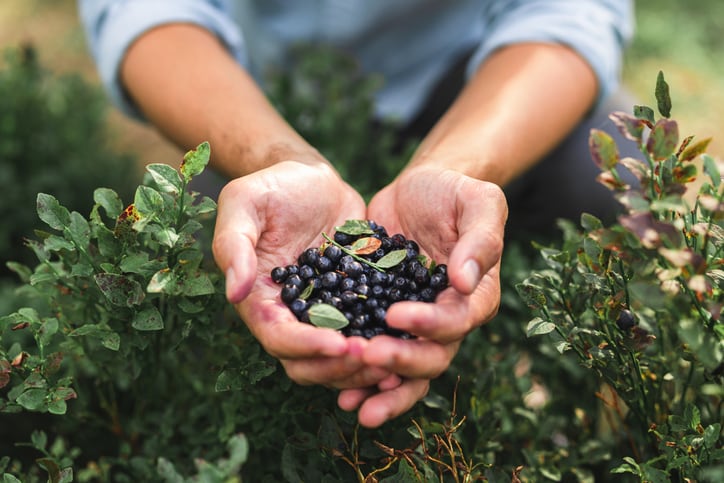The researchers assessed the impact of the Swiss ingredient company's patented wild blueberry extract (WBE) ThinkBlue supplement at varying doses compared tp placebo over a five-week period on executive functioning, episodic memory and cardiovascular outcomes in 28 healthy older adults between the ages of 68 and 75.
They also studied the effect of high dose WBE or placebo in 45 participants to assess its effect on cognitive decline during a predicted post-lunch dip as well as its impact on cardiovascular outcomes.
The collective aim was to identify an optimal WBE dose and temporal profile for cognitive benefits across the course of a day, including during the known postprandial dip where cognitive resources are low.
Findings indicated that acute WBE supplementation of 222 mg improved the reaction times of participants during post-lunch dip, the authors reported in the journal Nutrients.
“These preliminary acute findings demonstrate for the first time that a low dose enhanced formulation of wild blueberry extract may deliver both cognitive and cardiovascular benefits after acute intervention,” said Romain Le Cozannet, clinical research investigator at Givaudan Taste & Wellbeing.
Anthocyanins improve cognition
Anthocyanin-rich foods such as berries are recognized for their potential to improve or attenuate the decline in executive functioning and episodic memory in aging adults.
Blueberry extract has been found to improve vascular function through improving nitric oxide bioavailability, oxidative stress and inflammation, and it has been hypothesized that vascular function could affect cognitive performance through changes in cerebral blood flow (CBF).
As research has shown that people experience a decrease in alertness and attention around 2 p.m., often exacerbated by meal consumption, the authors of the new study hypothesized that this decline could be lessened with WBE during this post-lunch period.
Blueberry extract and mental fatigue
The WBE consisted of wild blueberry powder extract (89%), L-cysteine (10%) and L-glutathione (1%), containing a minimum of 35% polyphenols and at least 5% anthocyanins.
Both parts of the study employed a randomized, double-blind, crossover, placebo-controlled design.
In one, participants received a single dose of WBE (111 mg, 222 mg, 444 mg) or 888 mg or a placebo, each separated by a one-week washout period. Outcomes were measured at 0 h (baseline), 2 h, 4 h and 6 h post intervention.
In the second, participants received WBE (222 mg) and placebo (one-week washout), and outcomes were measured at 0 h and 6 h, when a post-lunch dip was anticipated, further enhanced by consumption of lunch 1 h prior to cognitive testing.
The 222 mg WBE intervention aligned with known peaks in plasma blueberry polyphenol metabolites at 2 h post dosing, designed to coincide with a predicted drop in post-lunch performance.
Participants completed various tasks that assessed auditory and verbal skills, spatial episodic memory and choice reaction time. They also completed mood questionaries and had blood pressure and heart rate readings taken.
Results from the first part of the study showed a significant dip in executive function at the 4 h timepoint for placebo only, which indicated attenuation for WBE doses according to the authors. Results also indicated that supplementation with 222 mg produced acutely reduced blood pressure compared with placebo.
The second round of results observed executive function reaction time was significantly faster for the WBE 222 mg group compared to placebo at the predicted post-lunch dip, however no other notable benefits on a range of cognitive and cardiovascular outcome were observed.
The authors noted that "the advantages that were observed could be particularly meaningful for older-aged adults for whom small improvements in reaction time and BP may enhance daily cognitive functioning and health."
Le Cozannet noted that "by aligning the tasks with the predicted post-lunch dip in cognitive performance, the study design may help inform future investigations into acute interventions of executive function."
He did however add that further investigation into the benefits of the ThinkBlue formulation on cognition and cardiovascular health in healthy older populations, including the impact of dosage, timing and duration of consumption, would be needed.
Journal: Nutrients
"Wild Blueberry Extract Intervention in Healthy Older Adults: A Multi-Study, Randomised, Controlled Investigation of Acute Cognitive and Cardiovascular Effects"
doi: 10.3390/nu16081180
Authors: Cheng, N. Et al.


